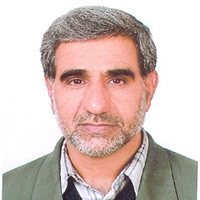Production of rice husk biochar and its effects on lentil and wheat biomass
Author(s):
Abstract:
Background And Objectives
Biochar application as a strategy for long term carbon sequestration has recieved worldwide attention. In addition to long term carbon sequestration and global warming mitigation, biochar application in soil can result in improvement of soil properties, enhancement of plant growth and sustainable management of agricultural, garden and industrial biomass wastes and residues . Most of reports about positive effects of biochar have been done in acidic soils and there is little information about biochar effects in non-acidic soils. Therefore this research was conducted to investigate the effects of production condition of two type of rice husk biochar on their properties and accessing these biochar effects on plant biomass production in a two plant (lentil-wheat) cycle in an alkaline soil in greenhouse condition.Materials And Methods
Biochar 1 and 2 were produced of rice husk at temperature range of 250-300 and 450-500 C, respectively and they were compared with each other. 0.4, 1.6 and 3.3 weight percent (B0.4, B1.6 and B3.3) of biochar 1 and 2 were added to pots. At first, lentil was seeded and then wheat was seeded after lentil harvest. Effects of type and application rate of biochar on biomass production were compared with each other and control (without biochar) treatment.Results
Molar hydrogen to carbon ratio and infrared spectrum of biochars showed more aromaticity in biochar produced at higher temperature. Increase of temperature led to smaller particle size, increase of electrical conductivity, pH, nitogen, potassium, calcium and phosphorus content of biochar. Two biochar effects on dry above and below ground biomass of lentil and wheat were not significantly different. But dry above ground biomass of wheat and dry below ground biomass of lentil and wheat in biochar 1 and 2 treatments were significantly higher in compared to control treatment. Effect of biochar application rates on dry above ground biomass of lentil were not significantly different with each other and control treatment. But dry below ground biomass of lentil in B3.3 was significantly more than other biochar application rates (B0.4 and B1.6) and control treatment. Dry above ground biomass of wheat in B1.6 and B3.3 was significantly more than B0.4 and control treatments. Dry below ground biomass of wheat in B1.6 was significantly more than B0.4, however it was not significantly different in comparison with B3.3. Shoot to root ratio of lentil in B1.6 and B3.3 was significantly less than control treatment. Shoot to root ratio of wheat was significantly less than control in all biochar application rates, however biochar application rates did not have significant difference with each other.Conclusion
More aromaticity of biochar 2 (produced at temperature of 500-450 C˚) in comparison with biochar 1 (produced at temperature of 500-450 C˚) means more long term carbon sequestration potential. Biochar application had positive effects on biomass especially below ground biomass. Biochar effects were not only limited to first growth cycle (lentil) but also exist in second growth cycle (wheat). Generally it can be concluded that biochar production of rice husk can improve plant growth even in alkaline soils. Keywords:
Language:
Persian
Published:
Soil Management and Sustainable Production, Volume:7 Issue: 2, 2017
Pages:
135 to 150
magiran.com/p1757303
دانلود و مطالعه متن این مقاله با یکی از روشهای زیر امکان پذیر است:
اشتراک شخصی
با عضویت و پرداخت آنلاین حق اشتراک یکساله به مبلغ 1,390,000ريال میتوانید 70 عنوان مطلب دانلود کنید!
اشتراک سازمانی
به کتابخانه دانشگاه یا محل کار خود پیشنهاد کنید تا اشتراک سازمانی این پایگاه را برای دسترسی نامحدود همه کاربران به متن مطالب تهیه نمایند!
توجه!
- حق عضویت دریافتی صرف حمایت از نشریات عضو و نگهداری، تکمیل و توسعه مگیران میشود.
- پرداخت حق اشتراک و دانلود مقالات اجازه بازنشر آن در سایر رسانههای چاپی و دیجیتال را به کاربر نمیدهد.
In order to view content subscription is required
Personal subscription
Subscribe magiran.com for 70 € euros via PayPal and download 70 articles during a year.
Organization subscription
Please contact us to subscribe your university or library for unlimited access!


